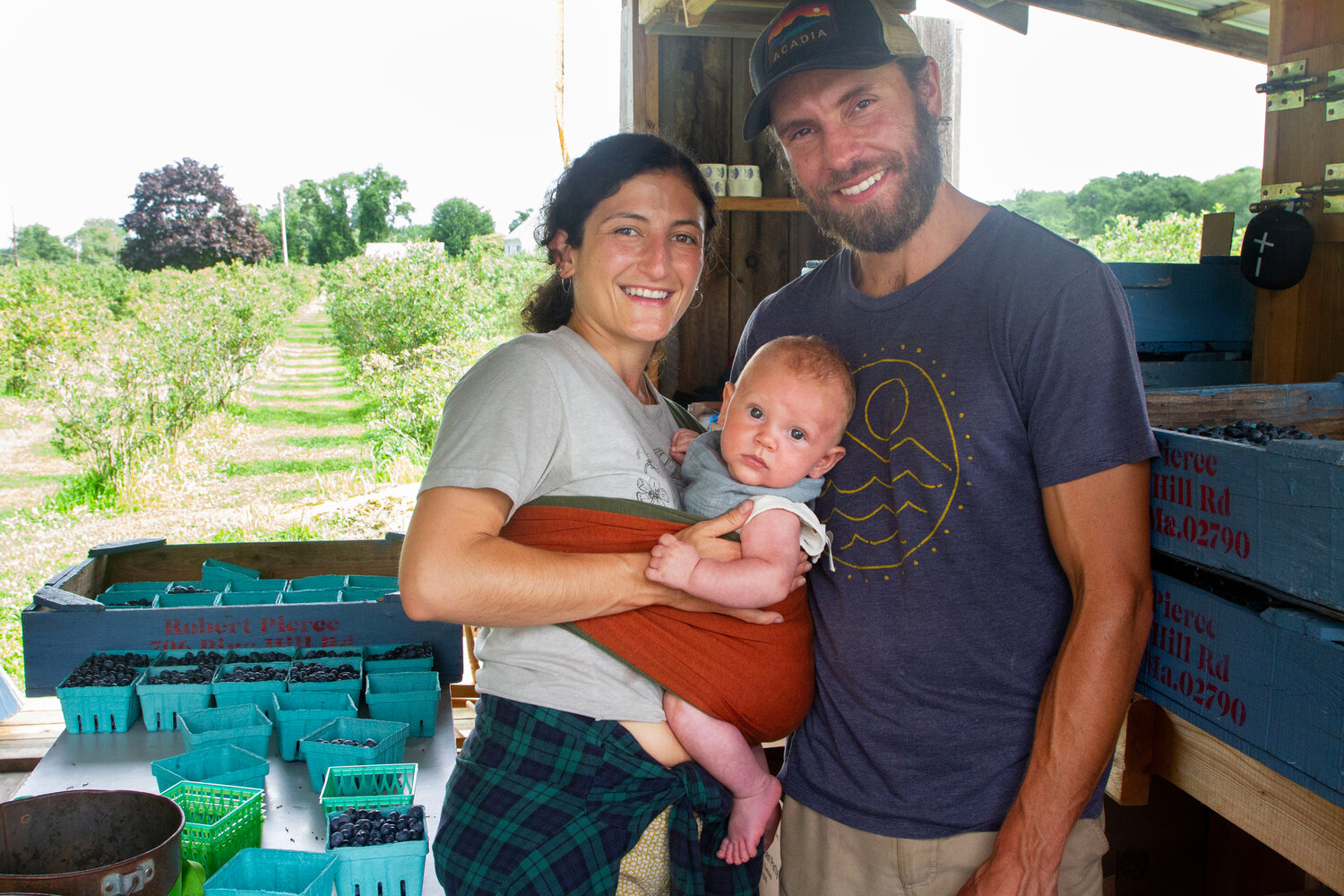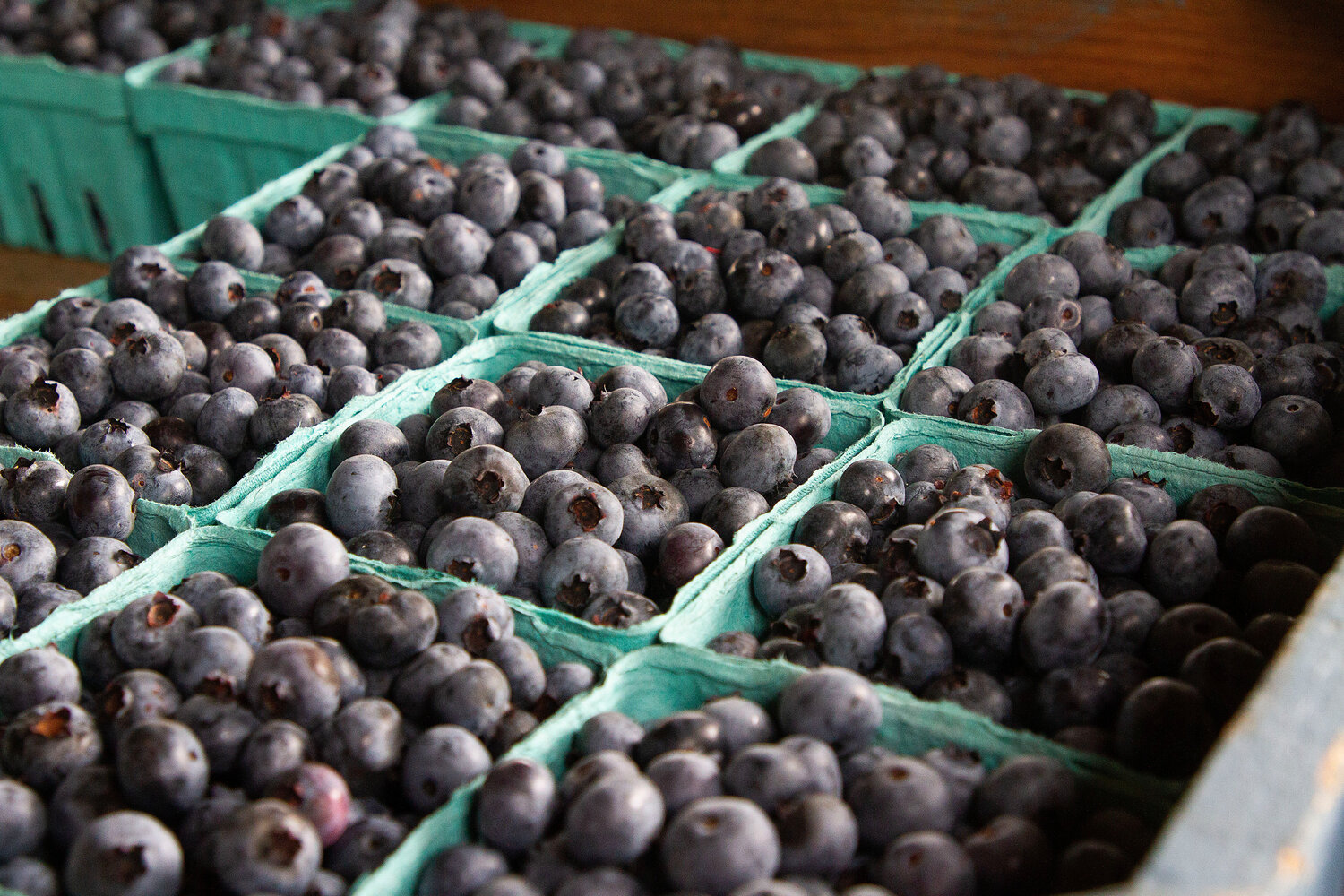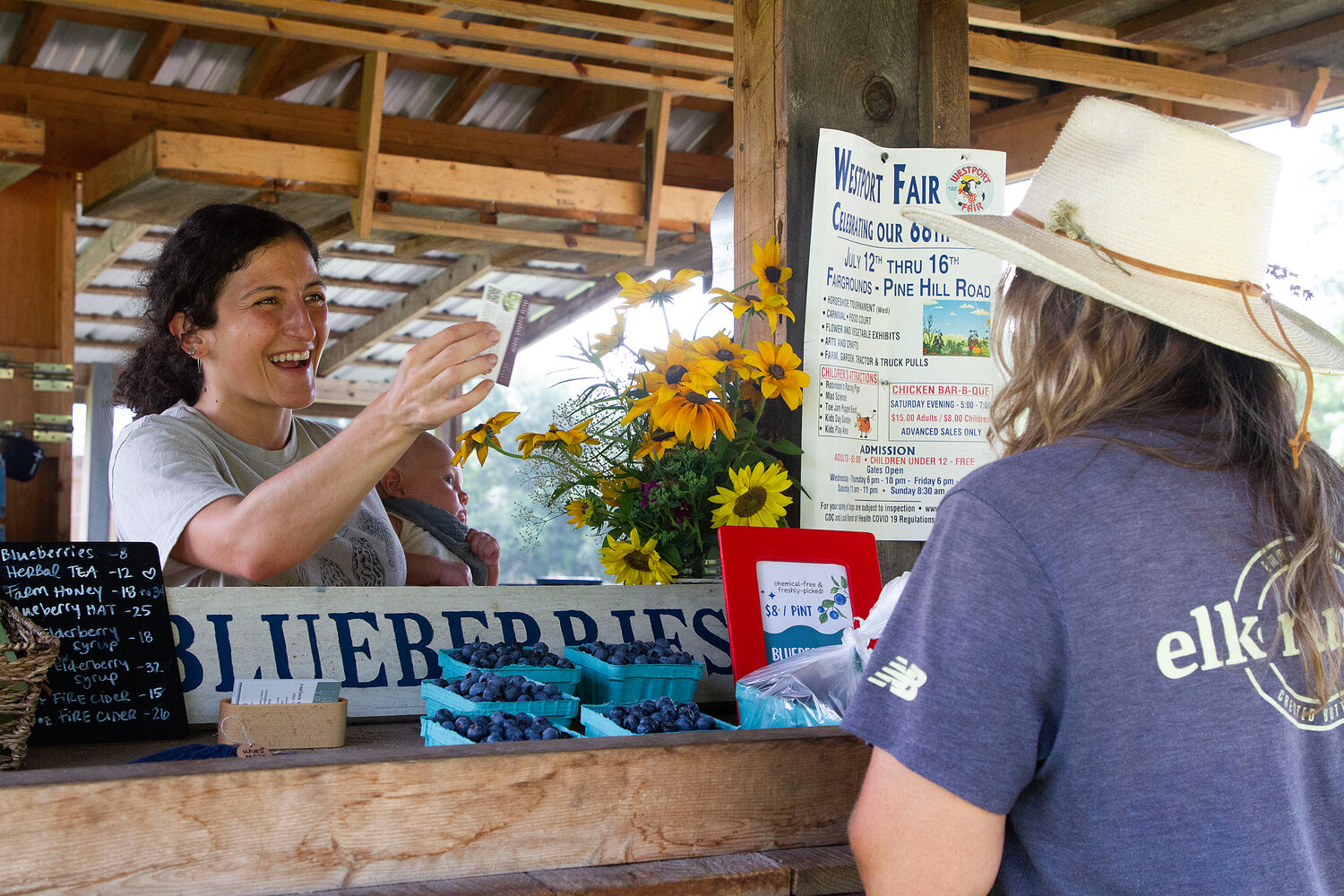Farming the Farm Coast: Berry Hill keeps it local
Couple purchased 42-acre farm in April
Editor's note: This is the second in a series of articles on the current state and future of farming along the 'Farm Coast,' the incredibly fertile, rolling countryside that skirts the ocean from …
This item is available in full to subscribers.
Please log in to continue |
Register to post eventsIf you'd like to post an event to our calendar, you can create a free account by clicking here. Note that free accounts do not have access to our subscriber-only content. |
Day pass subscribers
Are you a day pass subscriber who needs to log in? Click here to continue.
Farming the Farm Coast: Berry Hill keeps it local
Couple purchased 42-acre farm in April
Editor's note: This is the second in a series of articles on the current state and future of farming along the 'Farm Coast,' the incredibly fertile, rolling countryside that skirts the ocean from Dartmouth west through Westport and Little Compton, up to Tiverton and over to Aquidneck Island. There has never been more pressure on farmers here than there is today, with labor shortages, the prohibitive cost of land and housing, gentrification, attrition and the changing habits of consumers all taking a bite. But farmers are nothing if not resilient, and a loose coalition of regional farmers, land conservationists and like-minded food suppliers is working to improve their lot through a new campaign that aims to "Keep the Farm in Farm Coast."
This week, we talk with Carissa and Adam Davenport, who recently purchased the 42-acre Berry Hill Farm at 770 Pine Hill Road in Westport from the Westport Land Conservation Trust. They currently tend to two acres of blueberries and sell to the public out of their stand, and also wholesale primarily at Lee's Market, Orr's Farm Stand, Paradise Hill Farm and King Farm in Dartmouth. They also have plans to expand the farm to support their other business — their Town Farm Tonics, which creates and markets healthful and medicinal tonics and syrups, has been in business since 2019. The Davenports create their products at the Hope & Main food incubator space in Warren, RI., distributing them to nearly 150 stores from Maine to New Jersey.
Your stand has only been open to the public for a few weeks now. How is your first season going?
Carissa: “It gives me the chills, it’s been so heart-warming. We’re brand new to this, we’re in our 30s, and I think it would have been very easy for some of the older farmers to be very unsure about us. But everyone we’ve worked with so far has been overjoyed that we’ve taken over the farm. They’re really proud of what we’re doing here, and very supportive. It’s been humbling.”
Is this the culmination of a lifelong dream?
Carissa: “It is. My family is from Westport and we moved to Dartmouth right when I was entering high school. As a couple, when we first met as friends, we were already interested in growing our own food and medicine. We met because Adam had a garden building company and he built a garden for me in my back yard. And then that’s kind of where it all started. We connected over growing and our dreams of having our own land where we could grow for ourselves and our community.”
Did you ever think you’d have the means to own?
Carissa: Owning “always seemed like such a far-off thing, not something that could actually be possible until we were much older.”
Adam: “Maybe in 25 years!”
Carissa: “Yeah, like when we were too old to farm, and then we would have basically had to buy it and then hire young farmers to do what we’re doing now. But we’ve known for a couple of years about [the Westport Land Conservation Trust's practice of acquiring properties, putting conservation restrictions in place and re-selling to working farmers at agricultural rates]. We had looked at other properties in the past, and they didn’t fit our needs. This farm is perfect because of the size; it’s not too big, there’s already perennial plants here, which is what we want to do. And a lot of the land is open and has the potential to grow into the type of thing we want to do.”
What did you propose to the trust, and what is your business plan?
Adam: “We worked on our application for like eight months; it was about 36 pages and we intertwined everything in with our business plan. We tried to think of everything.”
Carissa: “This was the opportunity of a lifetime, so we took it very seriously. It’s a really good blueprint; things will change, but it’s been a good reminder that we have already thought through this a lot. Just in the couple of months we’ve owned the place, we’ve hired a local farmer to graze his cows. We work with a kid down the road who has a small farm on Pine Hill, and he’s picking berries to wholesale at his farm stand. And we have two beekeepers on the property.”
Adam: “This fall, we’ll start a small elderberry nursery and then it’ll be a fairly slow expansion (with other medicinal herbs, berries and crops that will help fuel Town Farm Tonics). We have a three-year grazing plan with our friend; it’s really going to take three years of rotational grazing to really make a solid impact on the soil, so we’ll try that. And we want to start a sort of pick-your-own model so people can come and experience what it’s like, and to take part. I’m excited about (growing for Town Farm). It deepens the integrity of product and that’s what excites me — it’s, ‘How do we vertically integrate our business in a way that creates a higher quality product?’”
You’ve both mentioned the importance of community several times. What does that mean?
Carissa: “If we want to keep agriculture here, then not everyone is going to be a farmer, but everyone has to value farming in order for farms to survive. And to value something, I think you need to experience it, and feel and see why it matters. So part of our mission as farmers is to be able to expose people to it so they can care about it and enjoy it. Maybe part of the reason why that matters to me is a grew up in a house that bordered a big dairy farm. So while my family wasn’t a part of it, we were a part of this community where we knew all our neighbors. And so I was able to feel like I was a part of it, even though I wasn’t, and that made a mark on me.”
It’s true that farmers rely on each other, and that reliance obviously extends to the relationship between the producer and the buying public. How can a small farm’s impact extend out in ways other than just providing food for a customer’s table?
Carissa: “There’s a growing awareness among consumers of where your money’s going when you make a purchase, and we think about that a lot. We work very hard, so when we make a purchase, we want to believe in where it’s going. I think keeping our business local — growing our own products, holding on to our manufacturing — that’s going to allow us to create jobs locally. So every time someone makes a purchase with us, they’re also putting money back into the pockets of people they know or people they’re neighbors with, and that’s really important to us because there’s a lot of options today and you can very quickly put a dollar in your pocket and send it far away, instead of keeping it circulating in your community. So to have the option to do that, I think, is really important. Also, if people aren’t exposed to agriculture, or are a part of it, then they might not realize why there’s a difference between blueberries grown in your town and blueberries shipped from Peru or New Jersey.
Adam, you’ve been working with the Marion Institute to establish Farm to School projects throughout the South Coast, teaching kids about the importance of local farming and farmers. What have you learned?
Adam: “I got into it because I realized how important it was socially, economically, environmentally, and in terms of food security. Then just every experience of seeing every kid planting their first seed, and then having teachers tell me the impact it made ... it was huge. [The teachers and kids] are much more interconnected into our community after participating. They’re having a lot of conversations about food security and food sovereignty and things like that, about how do we build a community around agriculture again? Like Carissa said, you value it so it can survive.”
Is the program expanding?
Adam: “Last year we actually started at Westport elementary schools as well.”
Why do you love this life?
Adam: “I’ve always had a passion for community and the environment. And I always saw the local food system as the best way to (accomplish) that. And we both just love working outside. I love building a business plan and doing all that, but also that’ll drive you crazy if that’s all you do. This is the real part of it. So not only should everybody have more physical experiences out in nature and connect with it, at the very least they should be able to participate in it by tasting and experiencing it.”
Carissa: “It’s a true community. We feel incredibly fortunate.”











